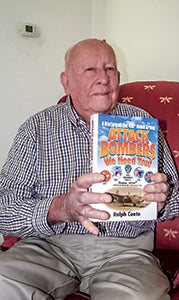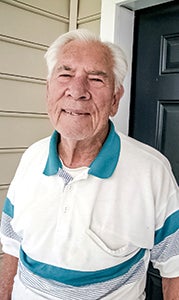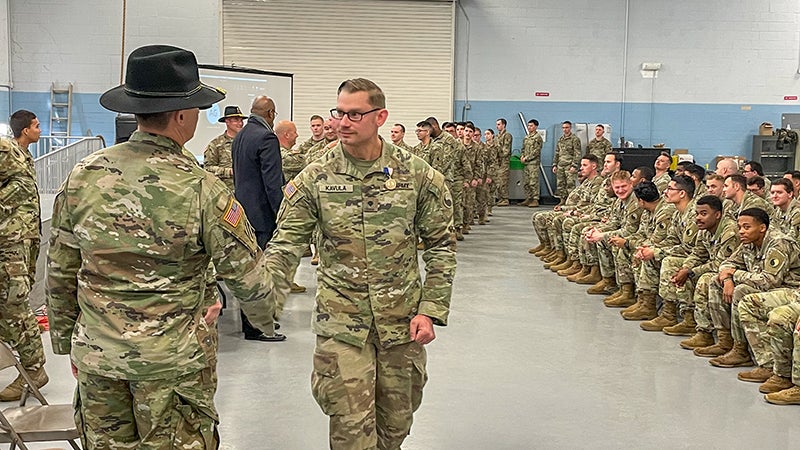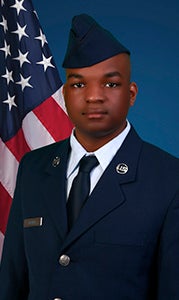Veterans recall D-Day
Published 7:10 pm Saturday, June 4, 2016
As the world prepares to commemorate D-Day on Monday, many thoughts will be with those who stormed the beaches of Normandy in the invasion that marked a turning point in the war.

Fred Nelms shows off a book, “Attack Bombers: We Need You! A History of the 416th Bomb Group,” which was written about his Army Air Corps squadron.
But the 160,000 Allied troops who landed on the beaches on June 6, 1944 — some to lay down their lives, others to start the methodical slog across Europe to defeat the Axis Powers — were backed up by many thousands more behind the scenes.
Suffolk residents Fred Nelms and Arlin Peeples, who both happen to attend Bethlehem Christian Church, were two of those behind-the-scenes men.
Nelms volunteered for the Army Air Corps in 1942.
“If you got drafted, they put you where they wanted you,” he said. “But I liked airplanes, so I wanted to do airplanes.”
Nelms wanted to be a pilot, but they said he was colorblind. He wound up as a gunnery officer with the 416th bomb group.
“We were what we call a light bomber squadron,” he said.
One of his earliest Air Corps memories is of getting homesick during boot camp while listening to Bing Crosby’s “White Christmas” playing on the radio.
After boot camp, he was based in England, near a town called Braintree. The food wasn’t great — “I don’t think he could boil water,” Nelms says of the chef — but the 600 or so in the bomb group stuck together.
Nelms remembers waking before dawn on D-Day to support the air raids that took place before the beach landings.
“We put everything in the air that we could get in the air,” he said. “We loaded bombs and ammunition all day long. That’s all we did all day.”
Nelms said the planes were targeting railroads, bridges, communications centers and the like to disrupt the Axis logistics ahead of the ground invasion.
“War is hell,” he said. “You either kill them, or they’ll kill you.”
Even so, Nelms stayed in the military as long as he possibly could. After a few more years of active duty after the war, he entered the Naval Reserve and stayed in “until they threw me out at the age of 60,” he said. He was called up once, during the Korean War, for a 15-month deployment.
“If I could recall 50 years, I’d go back in the military again,” he said.
Following his military service, he worked as a plant manager for Goldkist and retired from there, as well. He is celebrating 70 years of marriage with his wife, Betty, and is a member of the Bethlehem Ruritan Club and VFW 2582.
Peeples, on the other hand, was in the Mediterranean during the D-Day invasion. As a diesel mechanic on the landing crafts used to take the beaches, he saw the invasions from a ship.
“When they made Northern France, we were in Southern France,” he said. “Every time we put soldiers or Marines on the beach, we were getting shot at. It was combat all the time.”
Peeples had signed up for Navy service after getting a draft notice from the Army. His ships picked up troops and ferried them to various beaches to make landings.
He recalls so many Germans being on the beach at Salerno that the landing was impossible at first.
“We couldn’t take the beach,” he said. “It was a tough beach to take.”
He recalls the planes dropping bombs before the ground invasion came.
“They would bomb them for two or three days and nights before we made a landing,” he said.
Peeples, 94, said he enjoyed the Navy. Following his service, he was in the reserves for 26 years and also worked 26 years for the highway department.






